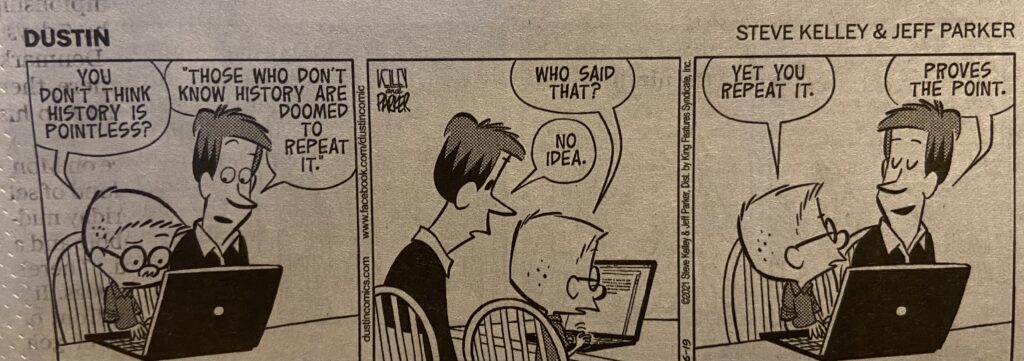
The 21st century has been witness to an amazing evolution of information technologies that are having a dramatic impact on how we digitize history. These technologies for good or bad, are transforming the way we learn. The human record is no longer limited by time, space, and even language. In regard to teaching history, social media has bypassed traditional academic channels and gatekeepers as the primary source of news and information. There is a growing awareness about history and how we present the past to future generations.
On the one hand, the accessibility of online historical collections has strengthened the value of primary sources. In fact, everyday, we are learning about new historical evidence that until recently lay dormant or relatively unknown. These discoveries are reinforcing the need to support the growing field of digital humanities and public history. But on the other hand, the abundance of online historic rhetoric is distracting and often too overwhelming. Critical thinking, is now being replaced with confrontation and strong opinions. In fact search technologies unfortunately reinforce “information bubbles” and people are not open to new ideas or concepts. As a result, the ability to have a civil “academic” discourse on a historic subject has been replaced with “digital” shouting or bullying.
Covid has demonstrated that the classroom is no longer confined to a singular place. In fact, synchronous learning may be a distant memory. The new norm of remote teaching and asynchronous learning provides both opportunities and challenges. For history teachers, the ability to use multimedia and provide access to other primary sources, presents a new way of making history come alive. Historical museums are moving towards making their collections accessible online. This provides a new resource for teachers.
For history teachers, there is real concern over their future. Could artificial intelligence one day eliminate their jobs? Will machine learning take over the traditional role of teaching? Like trends in other fields, will teaching history be programmable? The good news for now is that researching the past has never been easier. But unlike the traditional academic gatekeepers, individuals are required to think more critically and play a more active role in interpreting the information sources. Having access to more information is not a guarantee that everything online is accurate.
For the digital humanities there are now many options for presenting the past. These include new ways to visualize data and display historical information. In addition, online collaboration, like the use of Wikis, demonstrates that the wisdom of the crowd can be beneficial. But the future of historical research and discovery can not be depended just upon search engines, artificial intelligence, and other technologies. Society has to place a value on its heritage, and recognize that presenting the past, first starts with preserving it.